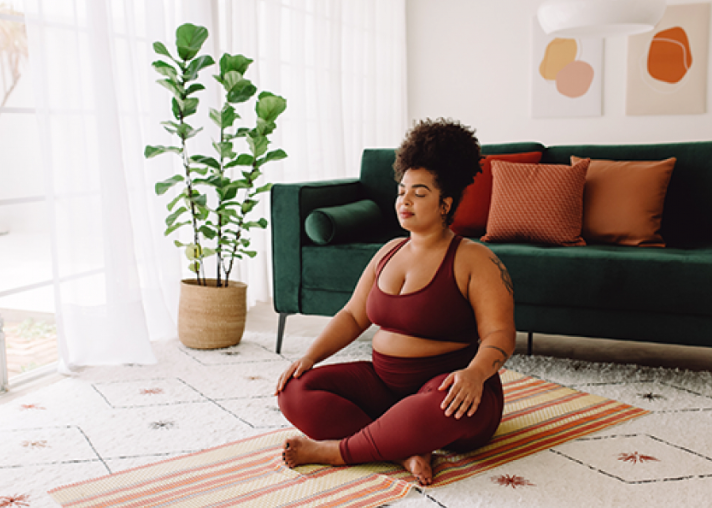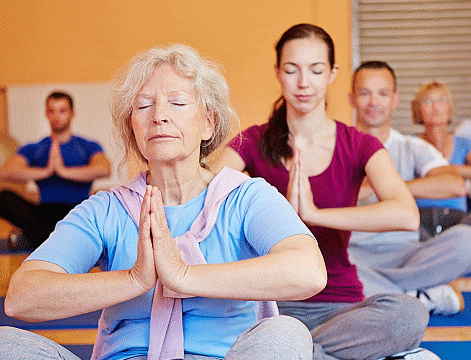Taking care of ourselves often feels like something we do only when we have extra time, but in truth, self-care is not a luxury. It is a foundation for better health and lasting happiness. When we nurture our bodies, minds, and emotions with mindful habits, we create a life filled with balance and resilience. In today’s fast-paced world, where stress and distractions are everywhere, prioritizing self-care has become more important than ever. This article is a complete guide to self-care, showing how small, consistent actions can improve physical health, mental clarity, emotional balance, and even our sense of purpose. Whether you are a busy professional, a student, a parent, or simply someone seeking a healthier lifestyle, the principles of self-care can help you thrive.

Understanding Self Care
Self-care is more than bubble baths or spa visits. At its core, it is the intentional practice of caring for your physical, emotional, and spiritual needs. It means listening to your body, setting boundaries, and nurturing habits that keep you healthy. There are several dimensions of self-care. Physical self-care includes exercise, nutrition, sleep, and preventive health care. Emotional self-care involves recognizing your feelings, practicing self-compassion, and building supportive relationships. Mental self-care focuses on reducing stress, stimulating your mind, and practicing mindfulness. Social self-care comes from maintaining healthy connections with family, friends, and community. Spiritual self-care relates to finding meaning, purpose, or peace through reflection, meditation, or faith.
Why Self Care Improves Health
When practiced regularly, self-care leads to lower stress and anxiety, better sleep, stronger immunity, and greater life satisfaction. People who prioritize self-care often experience healthier hearts, balanced hormones, and improved emotional stability. On the other hand, when we neglect self-care, chronic stress builds up, causing fatigue, weakened immunity, and even a higher risk of illness. By taking intentional steps toward self-care, we strengthen resilience and equip ourselves to face challenges with more clarity and energy.
Physical Self Care
Caring for the body is the first step toward better health. Nutrition plays a key role. Eating whole, nutrient-rich foods provides the energy and balance your body needs. Choose colorful fruits, leafy greens, whole grains, lean proteins, and healthy fats. Avoid excessive sugar and processed foods, and remember to hydrate throughout the day. Exercise is another essential element. Movement keeps your heart healthy, muscles strong, and mind refreshed. You do not need to spend hours in the gym. Even brisk walking, yoga, cycling, dancing, or light strength training can bring long-term benefits when done consistently. Sleep is often overlooked but is just as vital. Adults generally need seven to nine hours each night. Maintaining a consistent bedtime routine, reducing screen time before bed, and creating a calm environment all contribute to deeper, more restorative sleep. Preventive health care is another part of physical self-care. Regular check-ups, screenings, and dental care protect against future problems and allow early detection of health issues.

Emotional Self Care
Our emotions play a powerful role in overall health. Emotional self-care means paying attention to feelings and treating yourself with compassion. Instead of ignoring emotions, allow yourself to acknowledge them without judgment. Journaling or talking with a trusted person can help. Practicing self-compassion is equally important. When mistakes happen, be as kind to yourself as you would be to a loved one. Building healthy relationships also supports emotional well-being. Surround yourself with people who encourage, support, and respect you. Boundaries are essential too, helping you protect your emotional energy. Stress management is another form of emotional self-care. Relaxation practices such as meditation, deep breathing, gardening, painting, or listening to music help reduce stress and restore balance.
Mental Self Care
Caring for the mind strengthens focus, creativity, and clarity. Mindfulness and meditation are excellent practices for calming the mind and staying present. Even ten minutes of daily meditation can reduce anxiety and improve concentration. Lifelong learning is another valuable form of self-care. Reading books, exploring creative hobbies, or learning new skills keeps your brain active and sharp. Digital balance also matters. While technology is useful, overuse can drain your focus. Setting boundaries such as phone-free mornings or limiting social media helps the mind recharge.
Social Self Care
Humans are naturally social beings, and relationships are essential for health. Social self-care means investing time and energy in meaningful connections. Call or visit loved ones regularly, join groups with shared interests, and practice active listening when engaging with others. Volunteering is another powerful way to nurture social well-being, as giving back brings a sense of fulfillment and happiness.
Spiritual Self Care
For many, spirituality provides a deeper sense of purpose and peace. Spiritual self-care may include prayer, meditation, spending time in nature, or simply practicing gratitude. Reflecting on personal values and aligning actions with those values also supports spiritual growth. Whether connected to religion or not, spiritual self-care allows you to feel grounded and hopeful.

Practical Self Care Routines
Creating routines helps turn self-care into a lifestyle. A morning routine might include gentle stretching, drinking water, and setting a positive intention. Midday, you can take a short walk or pause for mindful breathing. In the evening, writing down three things you are grateful for and practicing a calming ritual like reading or light stretching helps prepare the body for restful sleep. Weekly self-care might include meal planning, exercise goals, social time, and personal reflection.
Overcoming Barriers to Self Care
Many people struggle with self-care because of busy schedules, guilt, or lack of motivation. The key is to start small. Choose one or two habits and focus on them consistently. Remember that self-care is not selfish. Taking care of yourself allows you to show up better for others. Tracking progress in a journal or app can help you stay motivated, and celebrating small wins reinforces positive habits.
Long Term Benefits of Self Care
Self-care is not a quick fix. It is a lifelong practice that builds strong foundations for well-being. Over time, the benefits include reduced risk of chronic disease, stronger immunity, more energy, greater productivity, deeper self-awareness, and more fulfilling relationships. Most importantly, self-care helps you live a life of balance, peace, and resilience.






